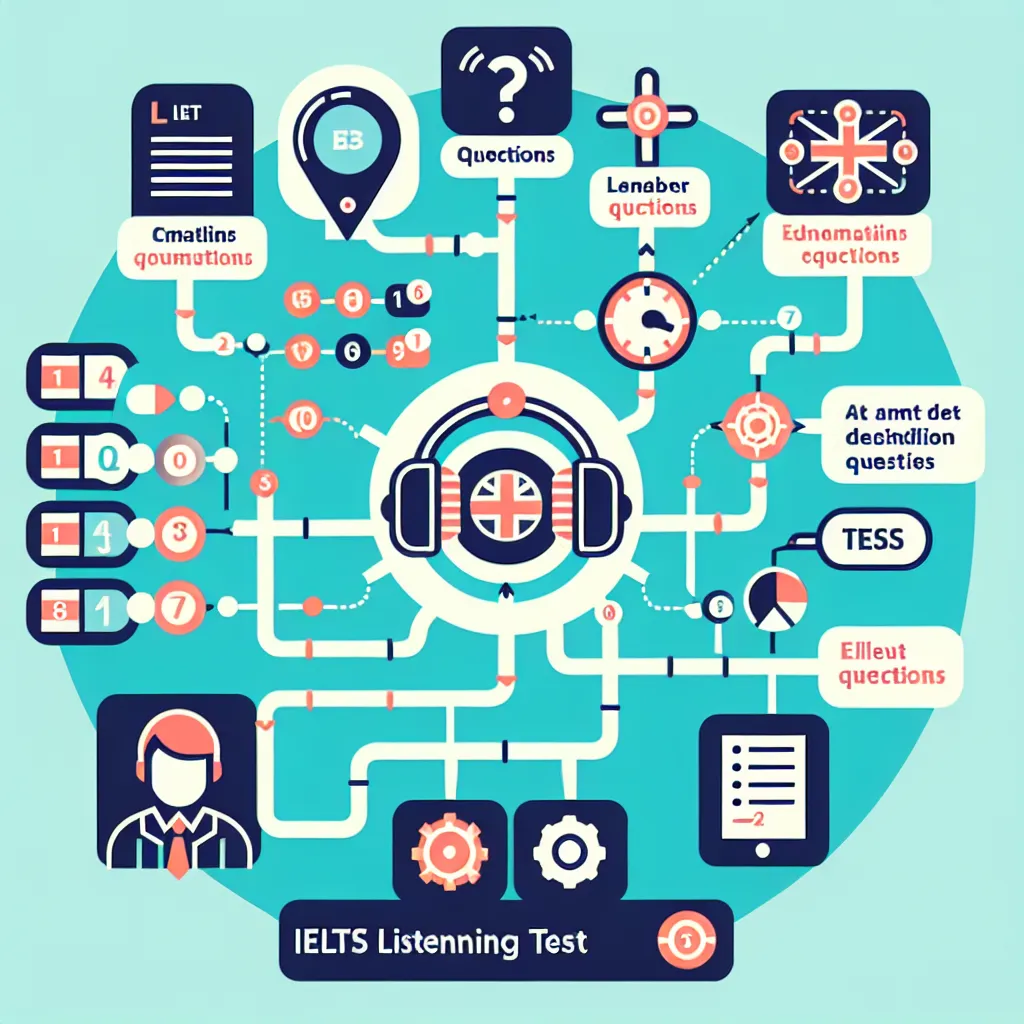Are you preparing for the IELTS exam and feeling overwhelmed by the Listening section’s multiple-choice questions? You’re not alone. Many test-takers find this particular question type challenging, but with the right strategies, you can significantly improve your performance. In this comprehensive guide, we’ll explore the best strategies for tackling IELTS Listening multiple-choice questions, helping you boost your score and confidence.
Understanding IELTS Listening Multiple Choice Questions
Before diving into strategies, it’s crucial to understand the nature of multiple-choice questions in the IELTS Listening test. These questions typically present you with three or four options, from which you must select the correct answer based on the audio you hear. They can appear in any of the four sections of the Listening test and may involve selecting one or more correct answers.
 IELTS Listening Exam Setup
IELTS Listening Exam Setup
Why Multiple Choice Questions Can Be Tricky
- Distractors: Incorrect options often contain words or ideas from the audio, making them seem plausible.
- Time pressure: You need to listen, read options, and select answers simultaneously.
- Vocabulary challenges: Unfamiliar words or synonyms can confuse test-takers.
- Attention to detail: Sometimes, the difference between options is subtle, requiring careful listening.
Now that we understand the challenges, let’s explore the strategies to overcome them.
Top Strategies for IELTS Listening Multiple Choice
1. Preview the Questions and Options
One of the most effective strategies is to use the time before the audio begins to familiarize yourself with the questions and answer choices.
- Read the questions carefully
- Underline key words in the questions and options
- Predict the type of information you need to listen for (e.g., names, numbers, opinions)
This preparation will help you focus on relevant information during the audio playback.
2. Listen for Synonyms and Paraphrasing
IELTS often uses synonyms or paraphrases the information in the audio. Be prepared to hear ideas expressed differently from how they’re written in the options.
- Expand your vocabulary by studying synonyms
- Practice paraphrasing exercises to improve your ability to recognize rephrased information
3. Eliminate Incorrect Options
As you listen, start eliminating options that you’re sure are incorrect. This process of elimination can help you narrow down your choices, even if you’re not immediately certain of the correct answer.
- Cross out options that contradict the audio
- Be cautious of options that use exact words from the audio but in a different context
4. Pay Attention to Qualifying Words
Words like “always,” “never,” “all,” or “most” can be crucial in determining the correct answer. These qualifiers can make an otherwise correct statement incorrect.
- Listen carefully for absolute terms and frequency adverbs
- Be wary of options that make sweeping generalizations
5. Don’t Get Stuck on One Question
If you’re unsure about an answer, make your best guess and move on. Remember, the audio keeps playing, and you need to be ready for the next question.
- Circle questions you’re unsure about and return to them if time allows at the end
- Trust your instincts – your first choice is often correct
 IELTS Listening Strategy Infographic
IELTS Listening Strategy Infographic
6. Practice Active Listening
Develop your ability to listen for specific information while simultaneously processing what you hear.
- Do regular listening exercises with a variety of accents
- Practice taking notes while listening to improve your multitasking skills
7. Be Aware of Traps
IELTS test makers often include “trap” options that can mislead inattentive listeners.
- Watch out for options that contain information mentioned in the audio but not relevant to the question
- Be cautious of answers that seem too obvious or simple
8. Use the Repeat Listening Wisely
Remember, you’ll hear the audio only once, but you can use the brief pauses between sections to review your answers.
- Double-check your selections during these pauses
- If you’ve missed an answer, stay calm and refocus on the next question
Common Mistakes to Avoid
- Choosing an answer because it contains words from the audio: The correct answer may use synonyms instead.
- Selecting the first option that seems correct: Listen to all options before making your final choice.
- Ignoring context: Make sure your chosen answer fits the overall context of the passage.
- Leaving questions unanswered: Always provide an answer, even if you’re unsure.
Next Steps: Putting Strategies into Practice
Now that you’re armed with these strategies, it’s time to put them into practice. Here’s how you can refine your skills:
- Regular practice: Use official IELTS practice materials to familiarize yourself with the test format.
- Timed exercises: Simulate test conditions by timing your practice sessions.
- Analyze your mistakes: Review incorrect answers to understand where you went wrong.
- Expand your listening repertoire: Listen to a variety of English-language content to improve your overall comprehension.
Remember, mastering IELTS Listening multiple-choice questions is a skill that improves with consistent practice and application of these strategies.
Conclusion
Tackling IELTS Listening multiple-choice questions doesn’t have to be daunting. By applying these best strategies – from previewing questions to active listening and elimination techniques – you can approach this question type with confidence. Remember, practice is key to internalizing these strategies and improving your performance. Stay focused, remain calm, and trust in your preparation. With dedication and the right approach, you’ll be well on your way to achieving your desired IELTS score.
We encourage you to share your experiences and any additional tips you’ve found helpful in the comments below. Good luck with your IELTS preparation!
[internal_links]
- IELTS Listening Section: A Comprehensive Overview
- Top 10 IELTS Listening Practice Resources
- How to Improve Your English Listening Skills for IELTS
- IELTS Reading Multiple Choice Strategies: Drawing Parallels with Listening
[/internal_links]




